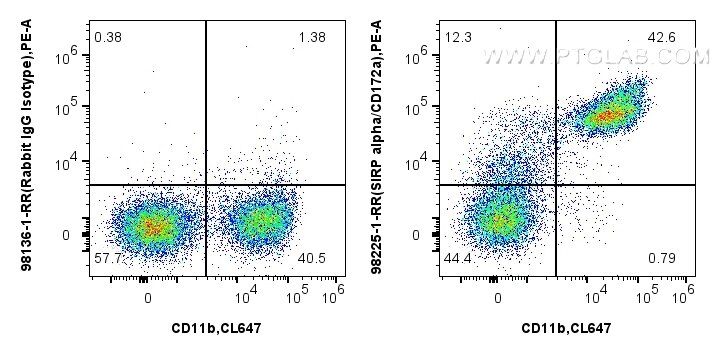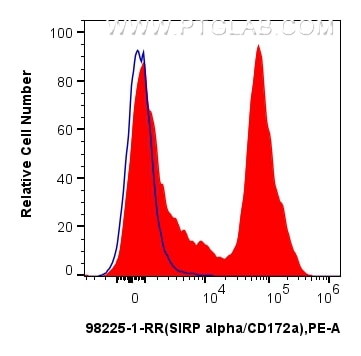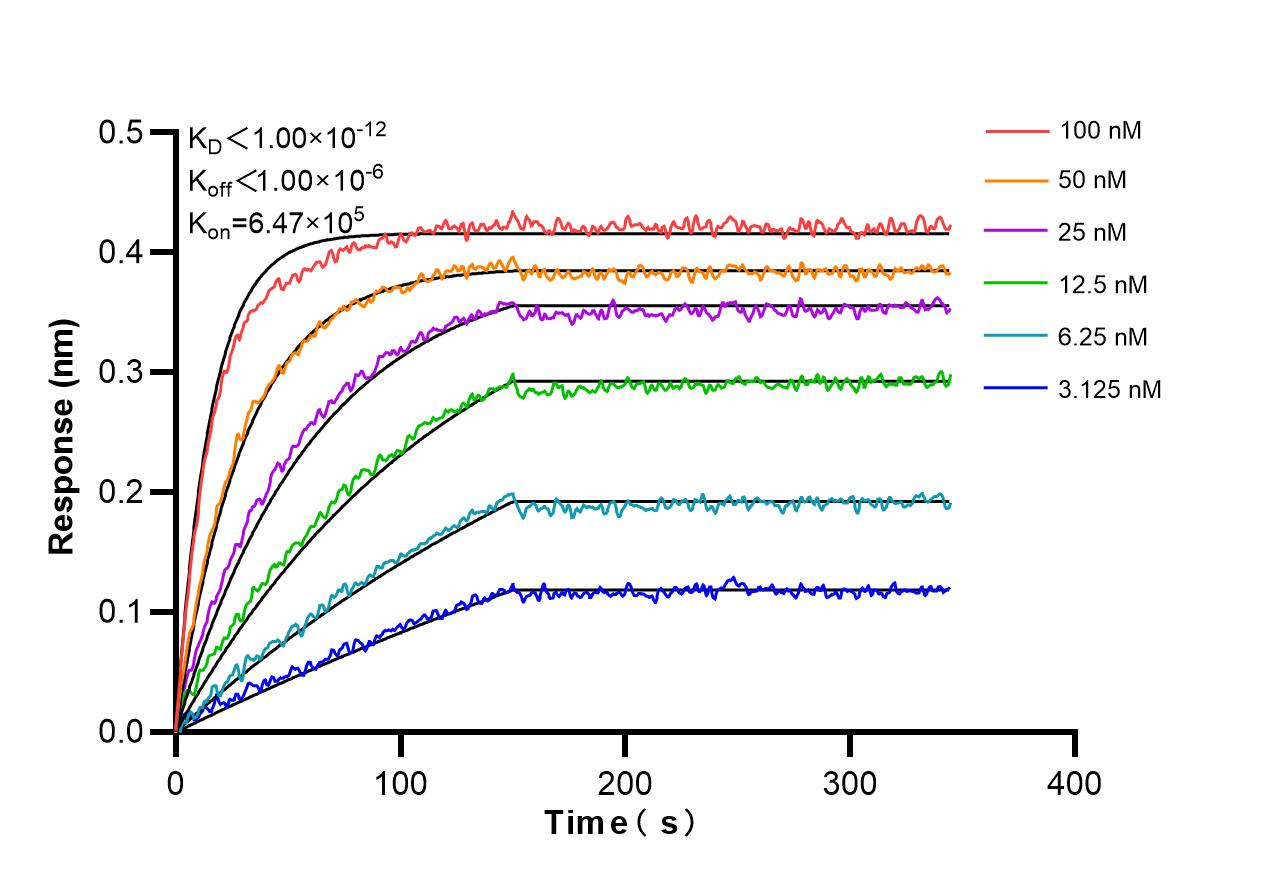Tested Applications
| Positive FC detected in | mouse bone marrow cells |
Recommended dilution
| Application | Dilution |
|---|---|
| Flow Cytometry (FC) | FC : 0.25 ug per 10^6 cells in 100 μl suspension |
| This reagent has been tested for flow cytometric analysis. It is recommended that this reagent should be titrated in each testing system to obtain optimal results. | |
| Sample-dependent, Check data in validation data gallery. | |
Product Information
98225-1-RR targets SIRP Alpha/CD172a in FC applications and shows reactivity with mouse samples.
| Tested Reactivity | mouse |
| Host / Isotype | Rabbit / IgG |
| Class | Recombinant |
| Type | Antibody |
| Immunogen |
CatNo: Eg1520 Product name: Recombinant Mouse SIRP alpha/CD172a protein (rFc Tag) Source: mammalian cells-derived, pHZ-KIsec-C-rFc Tag: C-rFc Domain: 32-373 aa of NM_007547.4 Sequence: KELKVTQPEKSVSVAAGDSTVLNCTLTSLLPVGPIRWYRGVGPSRLLIYSFAGEYVPRIRNVSDTTKRNNMDFSIRISNVTPADAGIYYCVKFQKGSSEPDTEIQSGGGTEVYVLAKPSPPEVSGPADRGIPDQKVNFTCKSHGFSPRNITLKWFKDGQELHPLETTVNPSGKNVSYNISSTVRVVLNSMDVNSKVICEVAHITLDRSPLRGIANLSNFIRVSPTVKVTQQSPTSMNQVNLTCRAERFYPEDLQLIWLENGNVSRNDTPKNLTKNTDGTYNYTSLFLVNSSAHREDVVFTCQVKHDQQPAITRNHTVLGFAHSSDQGSMQTFPDNNATHNWN Predict reactive species |
| Full Name | signal-regulatory protein alpha |
| Calculated Molecular Weight | 56 kDa |
| GenBank Accession Number | NM_007547.4 |
| Gene Symbol | Sirpa |
| Gene ID (NCBI) | 19261 |
| Conjugate | Unconjugated |
| Form | Liquid |
| Purification Method | Protein A purfication |
| UNIPROT ID | P97797-2 |
| Storage Buffer | PBS with 0.09% sodium azide, pH 7.3. |
| Storage Conditions | Store at 2 - 8°C. Stable for one year after shipment. |
Background Information
SIRP Alpha, also known as CD172a, SHPS-1, and BIT, belongs to the SIRP family. SIRP Alpha is a transmembrane glycoprotein expressed explicitly on myeloid cells and provides a "do not eat me" signal after engaging with integrin-associated protein CD47 on tumor cells (PMID: 36419386). SIRP Alpha shows heterogeneity in molecular weight (~65-120 kDa) in various tissues due to differential glycosylation (PMID: 18051954).
Protocols
| Product Specific Protocols | |
|---|---|
| FC protocol for SIRP Alpha/CD172a antibody 98225-1-RR | Download protocol |
| Standard Protocols | |
|---|---|
| Click here to view our Standard Protocols |








